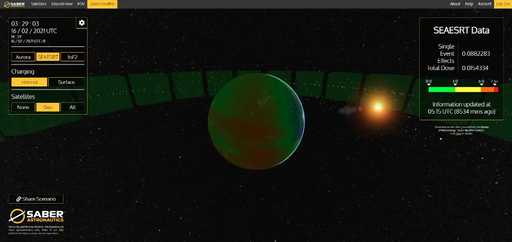Saber Astronautics is bringing next generation space mission control technologies to make it easier to fly new spacecraft.
The new Mission Control Center being built at Adelaide's Lot Fourteen, called the Responsive Space Operations Center (RSOC), will be the first professional control center in the world to use machine learning in the day-to-day operation of spacecraft. Saber will also incorporate innovative 3D gaming technology in the new control center and use space radiation data.
The Bureau of Meteorology signed an agreement with Saber to provide space weather information to the Mission Control Center at Adelaide's new innovation hub, known as Lot Fourteen.
Saber’s CEO, Dr Jason Held explains, “Spacecraft operators need to know what is happening in space in the same way a boat needs to know what is happening at sea.” Saber Astronautics uses space weather data to diagnose satellite health, giving RSOC customers a better chance to survive. For new businesses entering the space industry this is important, “every minute of down-time is millions of dollars in lost revenue.”
The Bureau's Space Weather Services tracks solar storms and high energy radiation, which can produce a range of effects in space and on Earth. Solar storms can damage or disrupt satellites, affecting navigation (including GPS) and communications. The largest storms can even damage power grids.
Dr Sarah Spackman, the Bureau's Space Weather Services National Manager, said “The Bureau of Meteorology is excited to be a part of this initiative. It provides us with an opportunity to develop novel environmental intelligence to help position the rapidly growing Australian space industry at the forefront of efficient spacecraft operations.”
The agreement between Saber and the Bureau of Meteorology secures a critical data stream for the RSOC, which goes live for Australian and US space operations customers in March 2021. Concurrent design, pre-flight testing, launch support, and live in-flight operations will all be managed by the RSOC. The Responsive Space Operations Center was selected by the Australian Space Agency for $6m in funding last July from the Australian Government's Space Infrastructure Fund.

